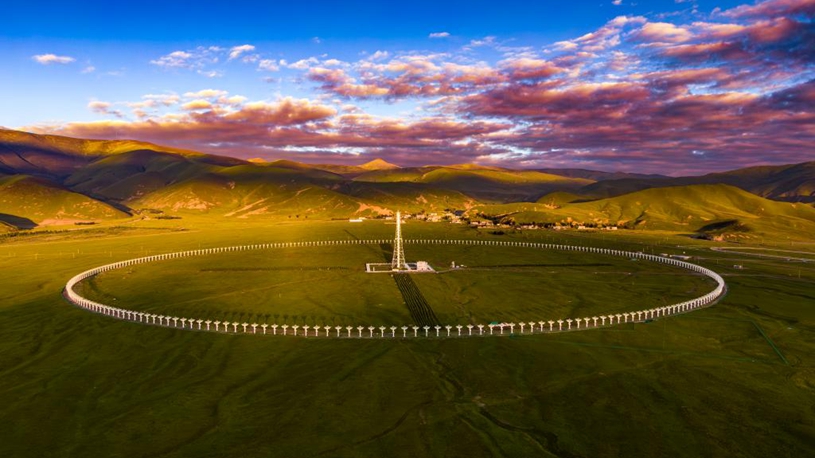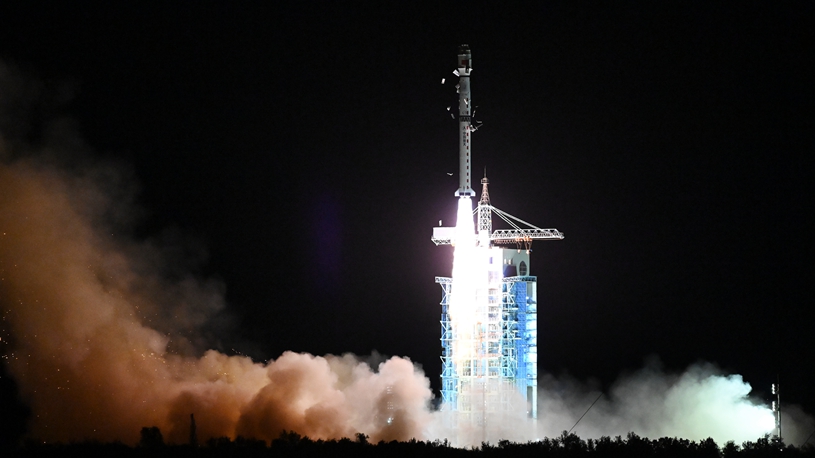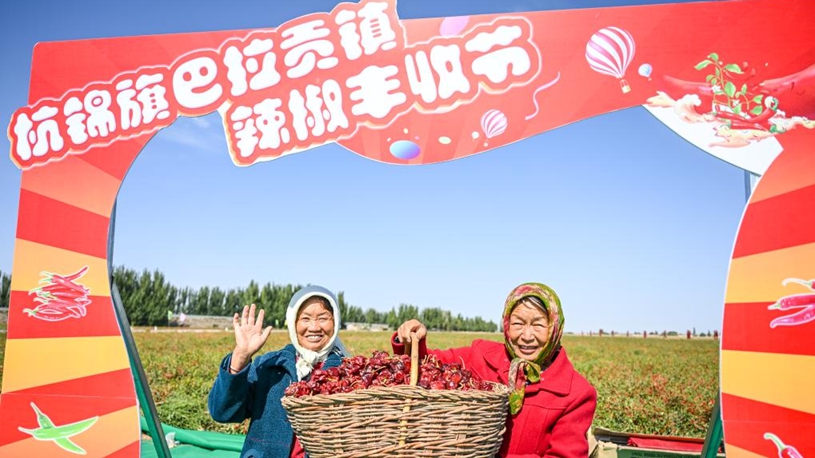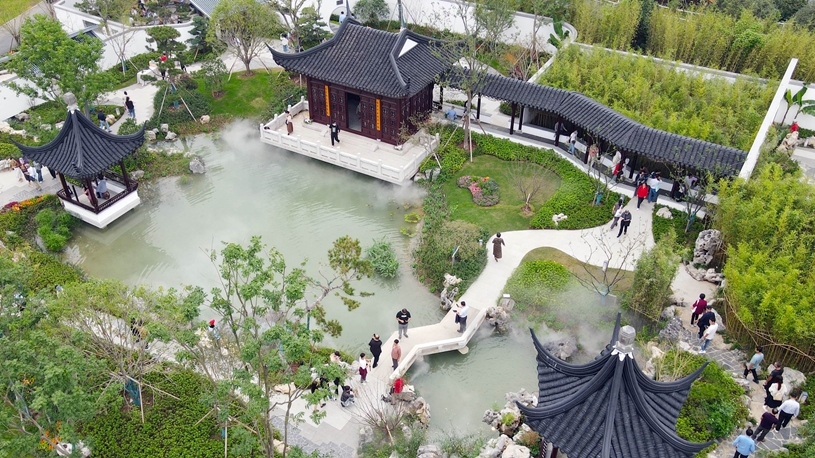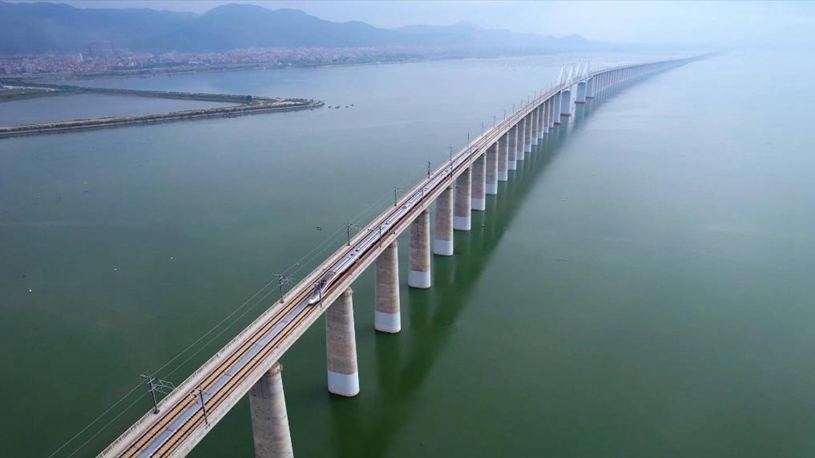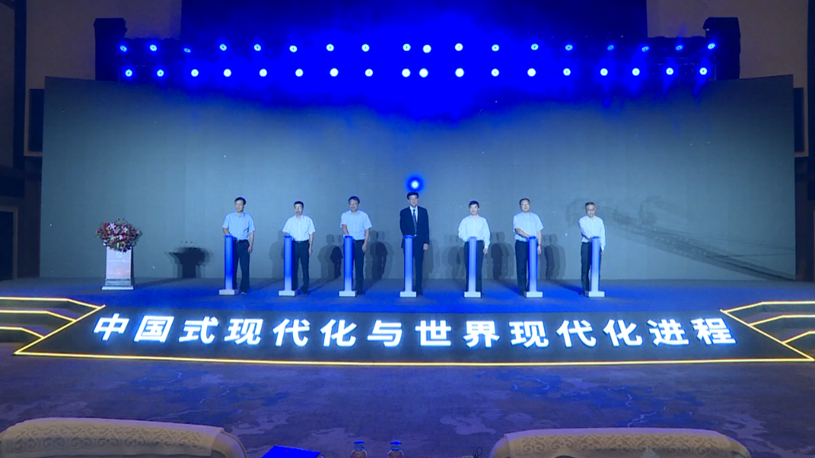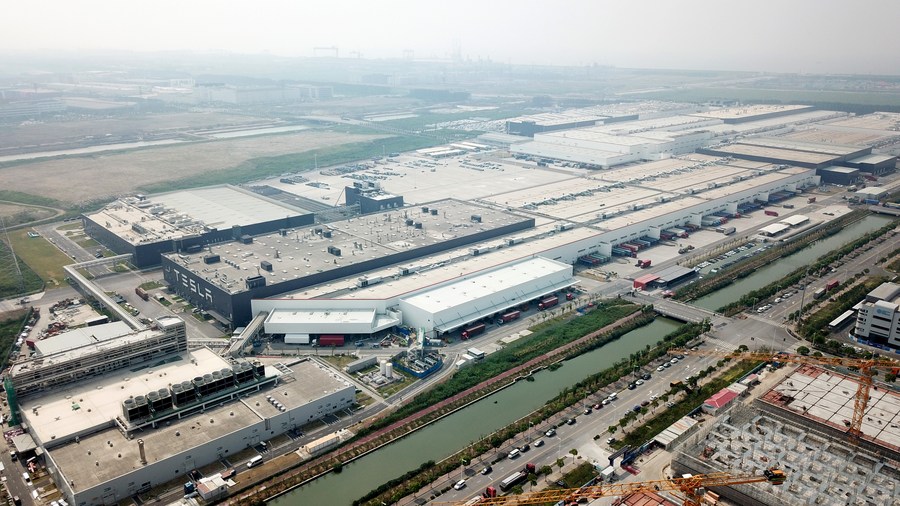
This aerial photo taken on Aug. 20, 2022 shows the Tesla Gigafactory in the China (Shanghai) Pilot Free Trade Zone in east China's Shanghai. (Xinhua/Jin Liwang)
BEIJING, Sept. 28 (Xinhua) -- Pilot free trade zones (FTZs) have become an important engine for China's high-level opening up, experts observed.
The pilot FTZs have stuck to the aim and requirements of high-level opening up in the past decade, focused on exploring an institutional system that is in line with international economic and trade rules, systematically promoted reforms that conform to market rules, and achieved many ground-breaking and leading institutional innovation results, said Sheng Qiuping, China's vice minister of commerce, at a press conference Wednesday.
Since establishing its first pilot FTZ in Shanghai in 2013, China has established an additional 20 FTZs nationwide. Up to 302 institutional innovations have been nurtured in these areas and later promoted nationwide, Guo Tingting, also vice commerce minister, has said at a forum commemorating the 10th anniversary of the establishment of the Shanghai FTZ.
In the past decade, these areas have contributed 18 percent of the country's foreign investment and foreign trade volume, while taking up less than 0.4 percent of the country's land area, Guo added.
The pilot FTZs will further align their policies with high-standard international economic and trade rules, and promote institutional opening up, according to Guo.
"The Shanghai Pilot Free Trade Zone represents a bold and pioneering initiative," said Dilma Rousseff, president of the New Development Bank.
Rousseff added that by maintaining the growth of foreign trade activities and expanding reforms to strengthen the financial and high-tech industries, the central and Shanghai governments are accelerating the process of economic transformation and modernization.
The pilot FTZ in Shanghai helped Tesla in accomplishing the "Tesla speed," according to Grace Tao, vice president of Tesla.
On Sept. 17, Tesla announced that it had recently reached a new milestone in China after its Shanghai Gigafactory, located in the Lin-gang Special Area of China (Shanghai) Pilot Free Trade Zone, rolled out its 5 millionth made-in-China vehicle.
"It's easy to sprint at the beginning, but it's very difficult to keep the sprint speed every day, which can't be separated from the high-quality business environment in Shanghai, especially in Lin-gang Special Area of China (Shanghai) Pilot FTZ," said Tao.
Tao noted that more than 360 new energy vehicle upstream-downstream industrial chain companies benefited from the pilot FTZ's bonus policies.
"Tesla will continue increasing its investment in China," said Tao.
The 21 FTZs have actively explored roads of opening up and development.
The Beijing pilot FTZ promotes advanced international standards in exploring rules for developing digital trade in line with China's conditions, while Guangdong pilot FTZ has vigorously introduced professionals in fields including architecture, medical care and tax from Hong Kong and Macao.
Over the past decade, in terms of promoting high-level opening up, FTZs have undertaken major opening-up pilot tasks and taken the lead in implementing the negative list management system in the fields of foreign investment and cross-border service trade.
In the future, FTZs will promote institutional opening up by matching high-standard international economic and trade rules, and will focus on opening up the service sector, according to Sheng.
"We will work to rationally reduce the negative list of foreign investment in pilot FTZs, and at the same time, promote the introduction of a negative list for cross-border trade in services, and lead the country to continue to expand opening up," said Sheng. ■

